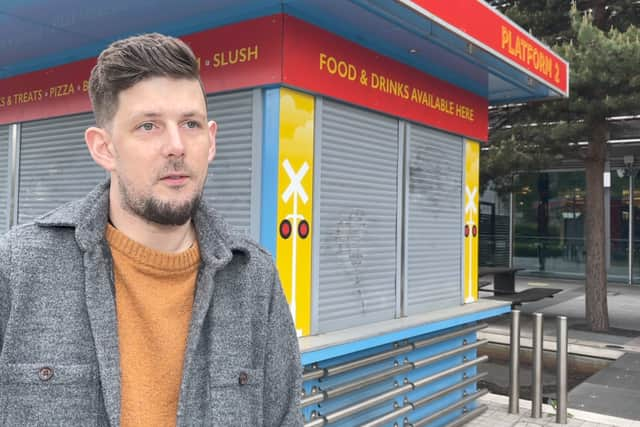Mental health awareness week: the impact of homelessness and higher cost of living
This article contains affiliate links. We may earn a small commission on items purchased through this article, but that does not affect our editorial judgement.
and live on Freeview channel 276
Thousands were tipped into homelessness during the pandemic, with the sharp rise in the cost of living putting many more at risk. The impact of homelessness to mental health often traps people in a cycle of poverty.
Hugo Sugg, the CEO of Cardon Banfield, was once homeless himself. He knows firsthand the struggles that come with being without a home.
Advertisement
Hide AdAdvertisement
Hide AdSpeaking to BirminghamWorld, he said: “The link between mental health and homelessness is very strong.
“When you lose the basic foundations of your life, so shelter, sleep, warmth - when you lose all of that, it’s like, literally someone pulling the rug out from under your feet.”
Sugg said that the first step to helping those who are homeless is to reach out to them. Get to know them and their story. Show them that you care.
“So what I recommend, and what we’d recommend at the foundation, is if you’ve got a bit of spare change, and you have time - kneel down, ask them their name and say, look, I’ve got £3 or whatever, that would you like? Take it back to them and sit down and have a conversation with them,” Sugg said.
Advertisement
Hide AdAdvertisement
Hide Ad

Over 200,000 households have been pushed into homelessness since April 2020, and as the cost of living crisis squeezes more households, thousands more are at risk. While resources appear incapable of circumventing a tidal wave, those who see no panacea on the horizon may have at least a few options available.
Sugg also recommends that if you are struggling with the possibility of becoming homeless, to reach out for help before it becomes a crisis.
“So I was homeless at 18. And I left home because of mental health issues. Mum was an alcoholic, I had a really bad time at school. So I left home at 17,” Sugg said. “If you’re in any trouble, or you think that something is going, you know, in two months time, you won’t be able to pay your rent, and go to your council and try and do prevention rather than trying to cure crisis.”
Homelessness may be a material reality during a time of crunch, for those living through it, the detrimental effects to their mental health can lead to a deeper reinforcement of the cycle of poverty. This impact can at least be mitigated in part by a change in response to their presence by the general public.
Advertisement
Hide AdAdvertisement
Hide AdSugg said that often at times, people who are homeless are invisible. We walk by them without a second thought. But if we take the time to reach out and connect with them, we can make a world of difference.
“When I was on the streets, if someone had actually said hello, are you okay? That would have meant the world to me,” Sugg said. “So we can respond to homelessness by actually acknowledging people who are homeless and not think we’re better than them. Anyone can be homeless at any time. And so you never know if you’re going to be in that position.”
A message from the editor:Thank you for reading. BirminghamWorld is Birmingham’s latest news website, championing everything that is great about our city - reporting on news, lifestyle and sport. We want to start a community among our readers, so please follow us on Facebook,Twitter and Instagram, and keep the conversation going.
Comment Guidelines
National World encourages reader discussion on our stories. User feedback, insights and back-and-forth exchanges add a rich layer of context to reporting. Please review our Community Guidelines before commenting.